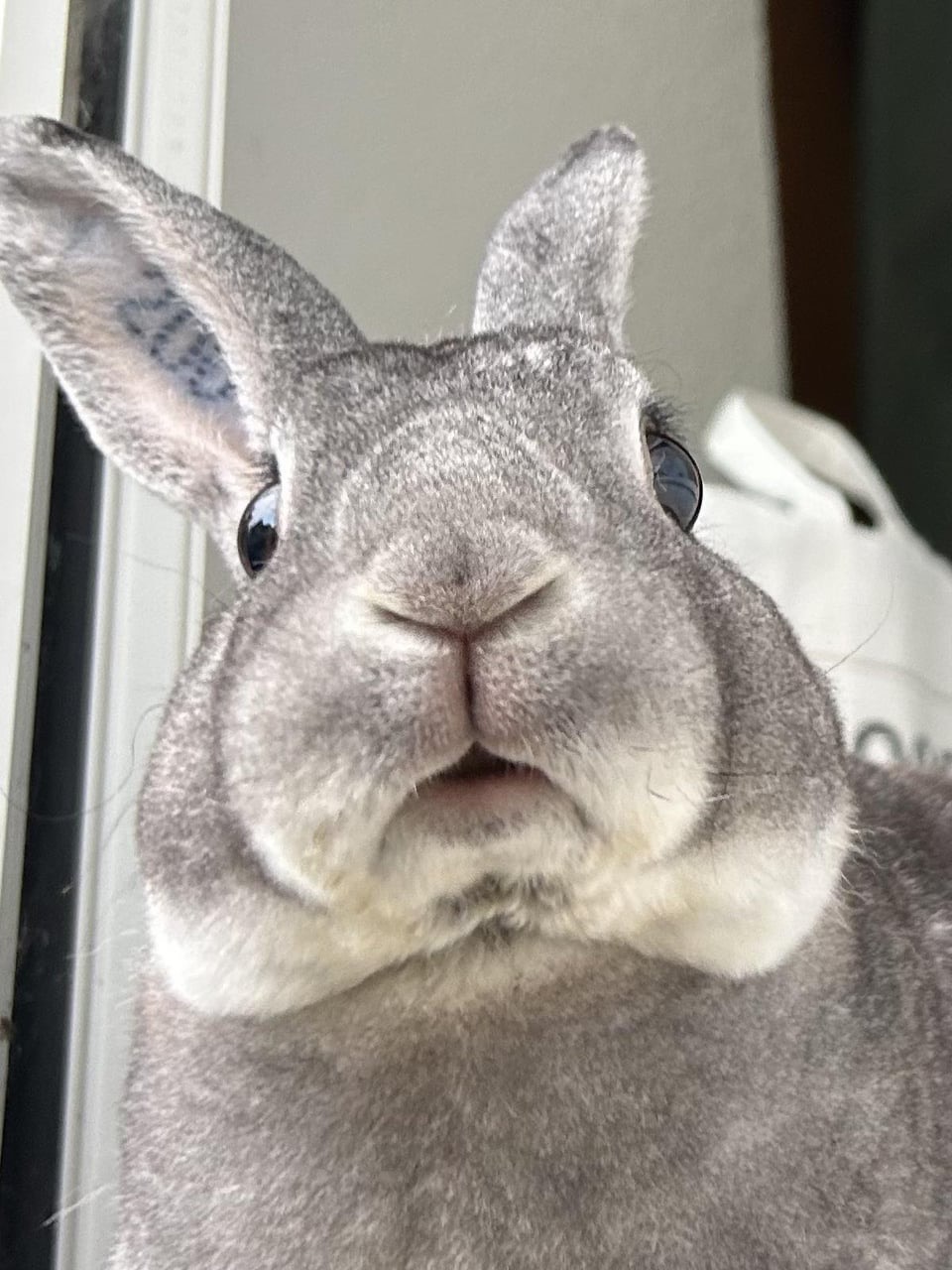71 here. (username checks out)
Just curious, what brought you to lemmy?
I was gonna guess 76
I was there Gandalf, 3000 years ago when the internet was made!
Ok boomer.
Well fuck, I’m on the young end of Gen X and I was around for the birth of the internet in '83.
What’s specific about '83? ARPANET began in 1969 and grew from there, mostly in academia, until HTTP finally transformed it into the WWW in the '90s.
The “September that never ended” began in 1993. Maybe you meant that?
I’m thinking of TCP/IP allowing for the connectivity to massively expand around '83.
Do you remember using Gopher?
I do. And telnet, and eventually winsock and altavista. I miss alt.lemmy.shitpost
Lemmy was first released in 2019. So its oldest user can be no older than about 6 years old.
That certainly explains some things…
I am ancient
There are definitely people in their 90’s using Lemmy.
For my own sake, I’m gonna assume there’s some 90+ dude in a nursing home, shitposting and laughing his ass off regularly. The nurses just assume he really likes beans or something, and that makes him laugh harder.
Keep trolling, old dude.
deleted by creator
…me… and the cough cough bois… at 3am cough cough …looking for slight giggle …beans
falls over like that one piece of bread
Based on the comments on some threads I’d say about 13
Nah gng you fr fronting with your lame ahh statistics bro ong💀🙏
My brain
Ive seen lemmy generally have older people than reddit
The must be at least one 14 year old
F off, cleanshirt!
69
Nice
No thnx.
Oldest I’ve seen so far claims 75. Can’t remember who it was though.
Is it you and your memory just isn’t as good as it used to be?
Oh, I am old, and my memory is dogshit, but I aint that old… :)
It’s Jesus Christ for sure.
@Jesus_Christ@hilariouschaos.com
There was a question posed about 60s flower children and such a bit ago they had someone saying they were one, so somewhere 70+ I’d guess.
Ah, yes, the lobster. A creature of profound significance, a crustacean with a lineage that extends back over 350 million years, a being that has clung to its hierarchical dominance since time immemorial. It’s not merely an animal; it’s a symbol, a beacon of ancient wisdom encoded in its very biology. And yet, here we are, in our contemporary chaos, blind to the lessons it offers. Blind! Can you believe it?
The lobster’s nervous system—an elegant dance of serotonin and octopamine—maps out the fundamental structures of dominance and submission. Do you understand what that means? It’s etched into their biology, their posture, their confidence. When a lobster wins a fight, it stands up straighter. Think about that. Its very physiology transforms in victory, its body declaring to the world, “I have triumphed!”—a declaration as old as life itself. And when it loses? It hunches, shrinks into itself, conceding its place in the pecking order.
Now consider this: Are we so different? Are we not as bound to these neurochemical realities as the lobster? Sure, we’ve built cities and universities and, yes, social media platforms—but at our core, our nervous systems are still calibrated for these ancient battles of standing up and shrinking back. You can see it in a boardroom, in a schoolyard, in the way people hold their heads when they feel like life is crushing them under its weight.
So, here I am, at 62, and I think about this more and more. Am I a lobster? No, of course not—don’t be absurd. But also, yes, yes, I am. Because we are all lobsters, you see. I’ve stood tall at times, but oh, I’ve hunched, too. You don’t get to 62 without bearing the scars of a few dominance struggles. You lose friends, you lose battles, you even lose some dignity—God help you if you’re paying attention—but if you’re lucky, you win some, too. And what does that leave you with?
Let me tell you what it leaves you with: resilience. The ability to rewire yourself, to recompose your posture after life’s great defeats. I mean, what choice do you have? Are you going to sit there, metaphorically—or perhaps literally—hunched over, or are you going to inject yourself with a little bit of that serotonin-like optimism and stand up straight with your shoulders back?
At 62, I find myself pondering these things. I’m a lobster who’s seen some things. The shell gets harder, sure, but the molting process—the shedding of the old to make way for the new—is more taxing. The older you get, the longer it takes to regrow what you’ve lost. The world feels heavier, the stakes higher, the battles less frequent but far more consequential. And yet, here I am, still molting, still reasserting my place in this inexplicable, absurd, often painful hierarchy of existence. Because that’s what it means to live—to be a lobster, if you will.
And what is our alternative? To sink into the depths, defeated, unresponsive, some forgotten crustacean resigned to its fate? No. No, that’s not acceptable. Not to me. You get up. You fight. You rebuild. Even at 62. Even when your claws are dull and your carapace cracked. Because if the lobster—this ancient, resilient, serotonin-driven marvel—can do it, so can we.
So, yes, I am a lobster. You’re a lobster. We’re all bloody lobsters, trying to figure out how to stand tall in a world that just keeps pushing us down. And if that’s not a lesson worth learning, then I don’t know what is.
Username checks out
I’m 61. Who’s older?
Me, I’m 72. I didn’t expect to make it past 30; dying young was all the rage back then and I did a lot of drugs. But somehow here I am, knitting, sipping tea and browsing Lemmy.
What was the industrial revolution like?
Lol
That’s pretty dang cool :)
How did you find Lemmy? It’s just the fediverse is a touch trickier to join without so I wonder how older people managed. I’m 50 but I’ve always been an internet person since the dawn of Livejournal so I figured most of it out.
From Reddit. But I started on Usenet.
✌️
58 here, feeling young :)
I joined Lemmy in about 400 years, way back in 2,444.
Tell us your story.
deleted by creator
bout tree fiddy
Who opened the door for the gotdamn lochness monster?!
Someone mentioned being 101 in a comment. Probably them.
deleted by creator
Oh, you search the first account, well that must be dessalines@lemmy.ml
But I bet he isn’t the oldest user.


















